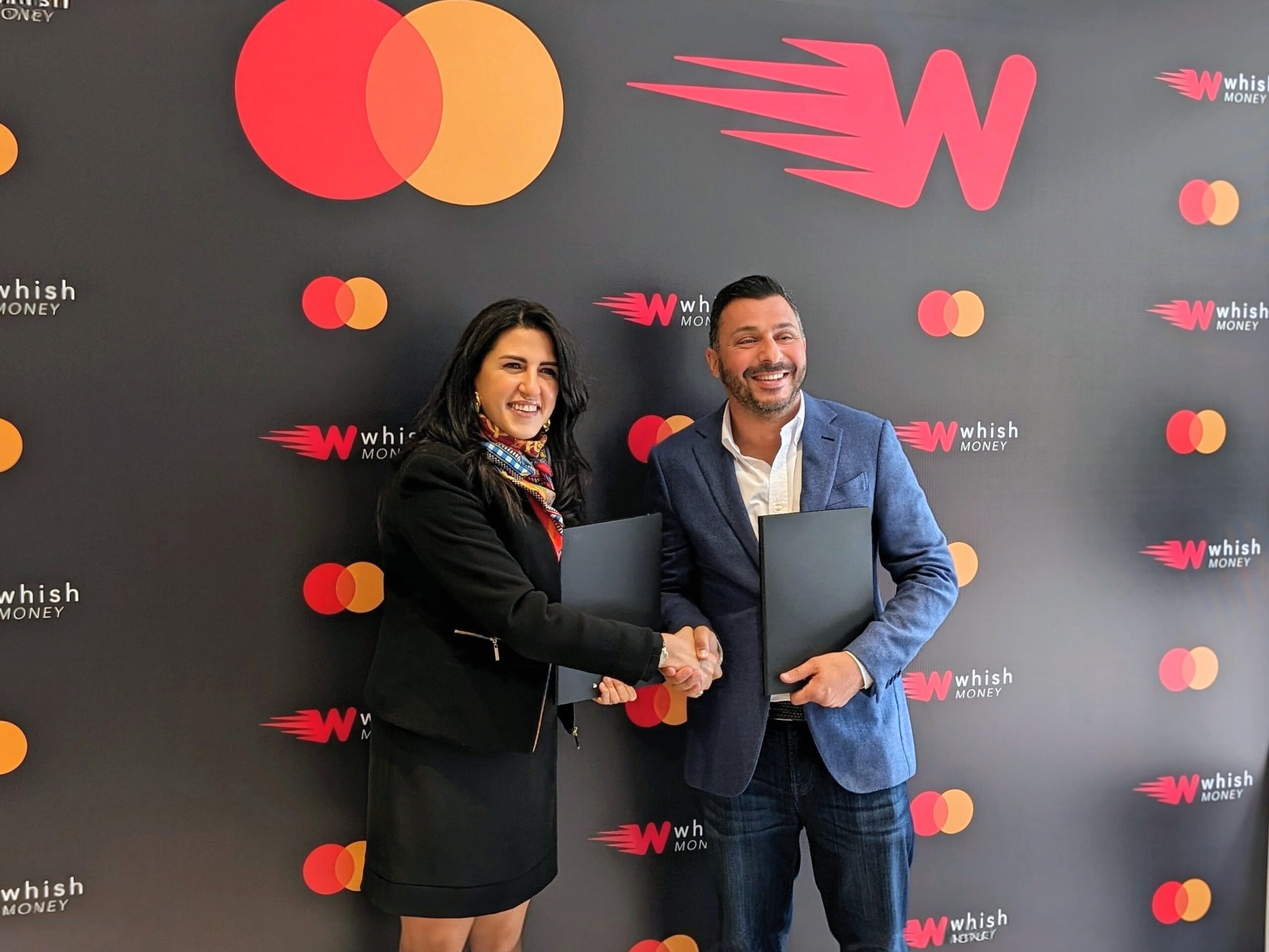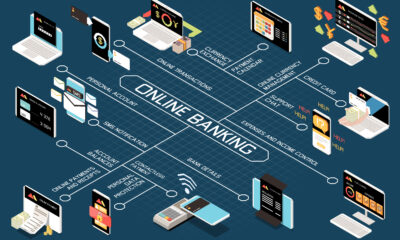Financial
Whish Money Mastercard Move: seamless Lebanon remittances

Whish Money has teamed up with Mastercard to make sending money to and from Lebanon simpler, faster, and safer. With Whish Money Mastercard Move, customers in Lebanon can now send funds abroad to more than 50 countries; meanwhile, Lebanese living overseas can send money home with near real-time delivery. Crucially, the collaboration uses Mastercard Move’s global money-movement rails and network partners, so transfers arrive quickly and transparently across multiple payout methods.
How it works—built for real life
Through the Whish Money app, users in Lebanon can initiate international transfers in near real time. Depending on the receiving market, beneficiaries can take funds into a bank account, a mobile wallet, or in cash. Additionally, senders in Lebanon can choose how to fund the transfer: cash remains available, yet they can now use cards to fund their Whish Money wallet as well. Because the service sits on Mastercard’s money movement capabilities, it benefits from reach, compliance rigor, and operational visibility across corridors.
First mover in Lebanon’s wallet space
This is Mastercard’s first collaboration with a mobile wallet in Lebanon to facilitate remittances, which matters in a market where international transfers are essential to household finances. Moreover, the timing aligns with a long-standing reality: remittances are a vital lifeline. The World Bank estimates Lebanon received US$6.4 billion in inflows in 2022, ranking third in MENA by absolute volume. Therefore, any improvement in speed, safety, or convenience can meaningfully affect day-to-day life.
Speed and trust—why Mastercard Move
Mastercard Move is the company’s portfolio of domestic and cross-border money-movement solutions. In practice, that means access to 200 markets, 150+ currencies, and coverage for more than 95% of the world’s banked population. Consequently, Whish Money can scale its cross-border business faster, while users gain dependable time-to-funds. Toufic Koussa, Co-founder and CEO of Whish Money, summed it up clearly: families rely on remittances, so the experience must be fast, efficient, and secure. Likewise, Mastercard’s regional leadership highlights the collaboration’s ability to deliver reach, transparency, and speed across inbound and outbound flows.
A choice that fits every corridor
Because each country handles payouts differently, flexibility is key. Some recipients prefer bank credits; others rely on mobile wallets; certain corridors still require cash pickup. Accordingly, Whish Money’s interface lets senders select what works best for their beneficiaries. Meanwhile, card-to-wallet funding adds convenience at origin, complementing cash top-ups and reducing friction for first-time users. As adoption grows, more customers can move from cash dependence toward digital rails without losing access to familiar options.
Near real-time in practice
“Near real-time” isn’t just marketing language. On many corridors, funds are available within minutes, subject to standard compliance checks. Because the platform integrates verification, screening, and routing underneath a simple consumer flow, customers see clear status updates and faster settlement. Furthermore, the combination of network reach and local partners helps keep fees competitive and delivery predictable.
Why this matters now
Lebanon’s diaspora spans the GCC, Europe, North America, and beyond. Therefore, send-home corridors must be reliable, transparent, and flexible. By pairing Whish Money’s local presence and agent network with Mastercard Move’s global rails, this collaboration lowers barriers for both inbound and outbound transfers. Notably, it also gives senders better control—choose the receive method, choose the funding method, and track the transfer with confidence.
What users can expect
Getting started is straightforward: download the Whish Money app, onboard, and choose a destination. Then select the payout method—bank account, mobile wallet, or cash—and fund the transfer via card or cash. Finally, confirm and track. As corridors expand, users should see additional options and features; however, the core promise will stay the same: faster, safer, near real-time remittances supported by global infrastructure.
In short, Whish Money Mastercard Move brings modern cross-border capabilities to a market that truly depends on them. With speed, flexibility, and trusted rails, the service helps families bridge distance—one transfer at a time.
Check out our previous post, AlRayan Bank Digital Banking Boost with Finastra
Financial
GCC TRANSFER PRICING TIGHTENS IN 2026 AS ENFORCEMENT MATURES

Dhruva, a tax advisory firm with deep expertise across the Middle East, and global markets, stated that the Gulf Cooperation Council (GCC) is at a clear inflection point in its fiscal evolution. Transfer pricing is moving beyond first-wave rulemaking into an enforcement-led environment where it is increasingly treated as a core element of corporate governance.
Drawing on the UAE Year in Review 2025 report recently launched by Dhruva, the region is moving past inaugural filing seasons and confronting the limits of reactive, post-facto compliance. “The past year has been transformative, representing not merely technical adjustments but a strategic recalibration of the region’s economic architecture,” said Nimish Goel, Leader, Middle East at Dhruva. In this environment, the behavioral reality of a business must align with its legal documentation, as tax authorities raise expectations around demonstrable economic substance.
A central theme in this scrutiny is Key Management Personnel (KMP). Where decision-making occurs, who exercises control, and how governance is evidenced are becoming determinative factors in how profits are attributed and defended. Inconsistencies across HR contracts, organization charts, board minutes, operational reality, and transfer pricing files are increasingly treated as a credibility gap, not a documentation error.
This recalibration is being accelerated by a shift in audit approach. Tax authorities across the GCC are moving from form-based reviews to more sophisticated, data-led scrutiny. Kapil Bhatnagar, Partner at Dhruva, stated that, “A key focus is the ‘invisible backbone’ of many regional groups, common-control and related-party transactions that sit at the heart of multilayered conglomerate structures. Informal arrangements historically treated as low-risk are increasingly being evaluated through an arm’s length lens, including interest-free shareholder loans, uncharged centralized services, legacy intercompany balances, and balance-sheet support. For forward-looking organisations, transfer pricing is no longer a compliance obligation but a strategic enabler.”
In parallel, the UAE has signaled stricter arm’s length expectations for Qualifying Free Zone Persons, with transfer pricing increasingly functioning as the mechanism through which substance is demonstrated under the Corporate Tax regime.
The stakes are further elevated by Pillar Two global minimum tax developments. Effective 2025, most GCC jurisdictions, including the UAE, Qatar, and Bahrain, either implemented or were in the final stages of implementing Domestic Minimum Top-up Taxes (DMTT). Under these rules, intercompany pricing can no longer be treated purely as a compliance variable, since it can materially influence a group’s effective tax rate and potential top-up exposure.
“In response, leading groups are shifting toward operational transfer pricing, embedding pricing policies into ERP workflows to improve year-round accuracy, data integrity, and audit readiness. This is increasingly relevant as audits begin to rely more heavily on data analytics, ERP trails, and transaction-level evidence, with deeper linkage expected between transfer pricing documentation, financial statements, tax returns, and support evidence,” added Kapil.
At the same time, demand is rising for certainty and dispute-prevention mechanisms, including Advance Pricing Agreements (APAs) and Mutual Agreement Procedures (MAPs), particularly for complex cross-border arrangements where predictability is commercially valuable. The UAE has already established a formal framework for clarifications and directives including APAs, confirmed unilateral APA applications from Q4 2025, and introduced a schedule of APA fees effective from January 1, 2026.
As the region moves into its next phase of maturity, Kapil concluded, “The message is clear, the era of fixing and filing is over. The era of governance, digitization, and transparency has begun.”
Financial
RETHINKING THE FUTURE OF VENTURE CAPITAL IN AN AI-DRIVEN WORLD

Dara Campbell, Senior Executive Officer, Hashgraph Ventures Manager
Venture capital isn’t what it used to be and that’s a good thing. The old playbook of “spray and pray,” waiting a decade for liquidity, and celebrating paper mark-ups is a thing of the past. In 2026, our industry is becoming faster, leaner, more intentional, and, ironically, deeply human.
We are standing at the intersection of the two most powerful technological waves of our generation: digital assets and artificial intelligence. This is not to say that these are the trending sectors for investment, but it is rather that funding the financial and digital infrastructure will define how value moves, how intelligence is deployed, and who ultimately owns the systems we will depend on.
We need to collectively acknowledge that programmable money and machine learning will be the drivers of the next generation of wealth. We are entering into an era where AI will help allocate, transact, and streamline capital in a faster and more efficient and adaptive way.
The most agile founders we see today are building with intent, efficiency, and transparency. They are building solutions in payments, logistics, supply chains, identity, and data ownership using real time AI infrastructure with blockchain rails underneath. When these two levels come together, you unlock productivity and scale in a way the traditional systems still can’t process.
Despite all this advancement, at its core venture capital remains a people-centric business. The biggest edge is access to conviction. When you meet a founder who can articulate why they are building something, not just what they are building, that’s where the signal lies. In my experience, the best investors will be those who can recognize that clarity early, match the founder’s passion, and stay in the trenches long after the initial cheque is written.
This is where the transformation is starting to show. As we move into 2026, we are also entering a new phase of infrastructure and DeFi 2.0. The dull layers – the rails, the protocols, the identity frameworks are becoming the foundation for this shift. From AI agents paying autonomously to real-world assets being tokenized at scale, these systems will underpin the next wave of innovation.
This is where Abu Dhabi is making strides on the global venture landscape. The emirate has rapidly emerged as a serious capital hub because it understands alignment. They are not replicating an ecosystem that’s been done before and has been successful – they are building something from the ground up that works for the region, for the new era of investors who are riding the wave of innovation.
The next generation of investors will be those who can successfully practice agility within the realm of regulation and who can integrate AI without compromising on the power of human instincts. The future of venture capital isn’t about replacing humans with machines; it’s about embedding systems in place where these two elements amplify each other. It’s a delicate balance, but that’s where the outliers are built.
Financial
UAE MOVES TOWARDS A MORE COMPLIANCE-FOCUSED TAX LANDSCAPE WITH RECENT VAT REFORMS: DHRUVA

Dhruva, a premier tax advisory firm with deep expertise across the Middle East, India, and Asia, stated that the UAE’s latest amendments to the VAT Law and the Tax Procedures Law, issued by the Federal Tax Authority (FTA) which are effective from 1 January 2026, represent a significant shift toward a more structured, and risk-focused tax environment. These amendments are expected to reinforce responsible compliance behaviors and reduce administrative friction for UAE businesses.
Dhruva noted that one of the most practical and welcoming changes is that it eliminates the requirement for taxpayers to self-issue tax invoices for imports subject to the reverse charge mechanism, which provides a lot of ease to businesses. Post series of amendments and clarifications issued by the FTA in 2025 in relation to self-issuance of tax invoices for imports, while a general exception was granted for such requirement for import of services, the same were required in case of import of goods for record-keeping purposes. This often-added administrative complexity without impacting the actual tax liability or input tax entitlement. Under the updated rules, taxable businesses have removed the obligation entirely, and hence, businesses will only need to maintain standard supporting documentation, such as invoices, contracts, and transaction records.
However, the firm highlighted that while some administrative burdens are being eased, compliance expectations are tightening elsewhere. One of the amendments gives the FTA authority to deny input tax recovery in cases linked to tax evasion – where a taxpayer knew or, critically, should have known, that a supply or its broader supply chain was connected to tax evasion. The law clarifies that taxpayers will be deemed to have been aware if they fail to verify the validity and integrity of the supply in accordance with procedures to be issued by the FTA.
Dhruva explained that historically, the responsibility to account for VAT rested primarily with the supplier, and recipients focused mainly on validating the tax invoice and meeting standard input-tax recovery conditions. In practice, however, the FTA has often linked a recipient’s input-tax eligibility to the supplier’s discharge of output VAT, denying recovery where gaps existed. The latest amendment now formally embeds this position in law, imposing additional due-diligence obligations on the recipient.
Ujjwal Pawra, Partner at Dhruva Consultants, commented, “This is a significant change. It is a clear message that the right to input tax recovery comes with the responsibility to validate the integrity of one’s suppliers and supply chain. Businesses must now demonstrate that they exercised practical, documented, and consistent due diligence. Clean invoices alone are no longer enough; what matters is a clean process.”
While the procedures and conditions are awaited, Dhruva advised that companies reassess onboarding procedures, supplier-vetting protocols, and documentation trails to ensure they align with the FTA’s expected standards.
Another material operational change is the introduction of a defined timeframe to act on credit balances. Under the amended framework, businesses will generally have up to five years from the end of the relevant tax period to request a refund of a credit balance or use that balance to settle tax liabilities, with targeted flexibility in specified cases where credits arise late in the cycle.
Transitional relief is also available for certain older credits around the changeover, which can help businesses address legacy positions in an orderly way. Dhruva said these changes reduce the risk of credits remaining unresolved on the balance sheet, improve cash flow planning, and encourage clearer internal ownership of refund positions.
Ujjwal further added, “The UAE has introduced a more robust operating framework for credit balances and refunds in line with international best practices. The message is simple: know your credits, map the deadlines, and file claims that are clear, complete, consistent, and easy to validate.”
Dhruva advised UAE businesses to act now with a finance-led approach. This starts with building a central credit-balance register by tax type and tax period, assigning an accountable owner, and tracking action dates so credits are either utilised or claimed in time. Businesses should also treat refund submissions as audit-ready files by preparing reconciliations, supporting documents, and a concise explanation of how the credit arose and why the amount is correct before submitting, rather than rebuilding the file after queries begin. In parallel, companies should prioritise older credit positions to assess whether they fall within the transitional relief window and avoid last-minute filings.
The firm also advised businesses to monitor any binding directions issued by the FTA and align their tax positions, documentation, and system settings accordingly to minimize interpretational differences and strengthen consistency over time.
-

 Tech News2 years ago
Tech News2 years agoDenodo Bolsters Executive Team by Hiring Christophe Culine as its Chief Revenue Officer
-

 VAR10 months ago
VAR10 months agoMicrosoft Launches New Surface Copilot+ PCs for Business
-
News10 years ago
SENDQUICK (TALARIAX) INTRODUCES SQOOPE – THE BREAKTHROUGH IN MOBILE MESSAGING
-

 Tech Interviews2 years ago
Tech Interviews2 years agoNavigating the Cybersecurity Landscape in Hybrid Work Environments
-

 Tech News7 months ago
Tech News7 months agoNothing Launches flagship Nothing Phone (3) and Headphone (1) in theme with the Iconic Museum of the Future in Dubai
-

 VAR1 year ago
VAR1 year agoSamsung Galaxy Z Fold6 vs Google Pixel 9 Pro Fold: Clash Of The Folding Phenoms
-

 Tech News2 years ago
Tech News2 years agoBrighton College Abu Dhabi and Brighton College Al Ain Donate 954 IT Devices in Support of ‘Donate Your Own Device’ Campaign
-

 Editorial1 year ago
Editorial1 year agoCelebrating UAE National Day: A Legacy of Leadership and Technological Innovation






















